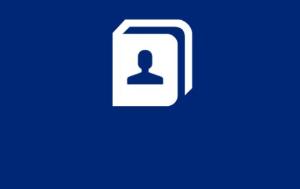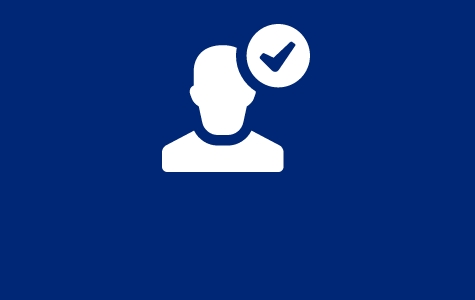Positive response after interview
– how to tip the scales



Positive response after the interview – the final key step in your application process
Everything has gone well so far. You've planned your application process effectively, reviewed countless applications and held interviews. And now you have finally found the dream candidate for your vacancy. Now you just have to give them the good news and get that contract signed. Stop! Sadly, it’s not that easy any more.
The tide has turned in the recruitment market and it’s no longer just you as a company that decides for or against your applicant. Nowadays, the shoe is on the other foot and applicants also get to decide whether a company is the right fit for them. We now often see a so-called “war of talents” among companies and applicants meaning you have to plan every little step of your application process. After all, even seemingly simple, standardised procedures, such as offering the job after the interview, can be crucial for your candidates in overcoming the final hurdle to your company.
Tips for a positive response after an interview
Think you've found the perfect candidate for your vacancy? Then make sure they can’t say no after the interview and do everything you can to support your chosen candidate and let them know that you’re available should they have any questions.
-
Avoid standard letters:
Take the time to send a personalised job offer, or at least edit your company’s standard template a little. This is an easy way to keep your candidate interested and excited. Emphasise the positives and you’ll increase the chances of your job offer being accepted.
-
Timing:
Don’t hang around – let the candidate know the good news as soon as possible and send out the job offer right away.
-
Put your best foot forward:
Make the offer as attractive as possible. Highlight the particularly enticing benefits.
Start as you mean to go on and use this phase as a chance to foster a good relationship with your applicants to ensure that they soon become satisfied employees. For example, when reaching out to the candidate with the positive response, use this as an opportunity to engage with them in a more relaxed setting and on a personal level, making sure to respond to any queries they might have in more detail.
When to send a positive response after an interview
It’s up to you when to tell the chosen candidate the good news. Of course, all applicants eagerly await your decision and want to know as soon as possible if they have been successful or not. But there are still a few things to weigh up following an interview. Are the qualifications sufficient? Is the candidate a good fit for the team and are their salary expectations in line with what you are willing to offer?
Most applicants are aware that a same-day response is unlikely. However, it is good to give candidates a time frame in which they can expect an answer. You should then stick to this time frame and let candidates know as soon as you have made your decision.
Giving a candidate the good news: to call or to email?
You’re probably just as excited as your applicants to know that you have found someone to fill your vacancy. Of course, an official job offer must be made in writing to be binding. But how nice is it to give your chosen candidate the good news over the phone and hear their reaction first-hand?
Once you have called to let them know they were successful, you should then always confirm the offer in an email. You should use the email to provide all the important information about the job and the next steps.
Writing a job offer
We’ve put together a small guide to help you sound more personal and approachable and make your job offer stand out.
It’s up to you who you choose to send out the good news to your candidate; there’s no right or wrong answer. What’s important is that the person you choose has already been in contact with the applicant. Ideally, your internal application process should predetermine who sends out the job offer (e.g. member of HR or relevant supervisor).
It’s up to you who you choose to send out the good news to your candidate; there’s no right or wrong answer. What’s important is that the person you choose has already been in contact with the applicant. Ideally, your internal application process should predetermine who sends out the job offer (e.g. member of HR or relevant supervisor).
If you are unsure, use your corporate culture as a basis for your decision on whether or not to use the candidate's preferred title and surname or, alternatively, use whatever form of address that was used during the job interview. Do you use “Du” or “Sie” in the job advertisement? Did you use first names from the start of the interview or did you switch to them after getting to know the candidate? Or perhaps your company is stricter and prefers formal methods of address?
Carry on using the form of address you used last. If you have already been using a candidate's first name, reverting back to the formal title would not make sense.
If you are unsure, use your corporate culture as a basis for your decision on whether or not to use the candidate's preferred title and surname or, alternatively, use whatever form of address that was used during the job interview. Do you use “Du” or “Sie” in the job advertisement? Did you use first names from the start of the interview or did you switch to them after getting to know the candidate? Or perhaps your company is stricter and prefers formal methods of address?
Carry on using the form of address you used last. If you have already been using a candidate's first name, reverting back to the formal title would not make sense.
Just like the rest of the application process, the job offer should also reflect your corporate culture.
Avoid any spelling or grammar errors. Be authentic and approachable. Show that you and all of the team are looking forward to working together with the chosen candidate.
Just like the rest of the application process, the job offer should also reflect your corporate culture.
Avoid any spelling or grammar errors. Be authentic and approachable. Show that you and all of the team are looking forward to working together with the chosen candidate.
What to include in the job offer
You could keep it simple and send your chosen candidate a run-of-the-mill job offer template, changing only the names and the job title. However, in the same way that you don’t like receiving standard, copy-and-paste applications, applicants are also looking to make sure that you see and value them as an actual person. It’s therefore important to personalise your offer email.
- 1
- 2
- 3
- 4
Start the email with the job offer and reiterate the job title.
Make reference to previous interviews/conversations and let them know what impressed you in particular, e.g. engagement, motivation or project presentation.
Outline the reasons for your decision and use this as a chance to demonstrate your interest and esteem for the candidate.
Clearly explain the next steps. The steps that follow a job offer are always different in each case. Indicate when you would like to negotiate salary and explain when the candidate can expect the official job offer or employment contract draft.
“Positive response after interview” template
Even if you want to personalise each job offer, you can still use this template as a basis and keep modifying and improving it over time, adapting it to each new candidate. Demonstrate your company culture and add a personal touch to the job offer. This will help dispel any last doubts your candidates might have about accepting your offer.
Dear Ms..., dear Mr...,
We are thrilled to let you know that you have been successful. You really impressed us in your interview for the role... and we would love to welcome you to our team. We think you’ll fit right in at our company and be the perfect addition to our team with your know-how and, more importantly, your personality. We could already see just how meticulous and detail-oriented you are in your presentation and we believe that your way of working is just what we need to drive forward our own projects.
We hope we were able to impress you too and would be thrilled to have you on board.
As discussed on the phone, we enclose a copy of your draft employment contract detailing all the agreed terms. If you have any questions or comments, don’t hesitate to get in touch. If everything is in order and you’re happy to proceed, please return the signed copy by ... .
We will contact you again with information about your first day with us and to discuss some other important documents.
We look forward to working with you.
Yours faithfully,
You might also be interested in:

Recruitment
Trust our professional recruitment when looking for qualified staff.

Your Hays advantages
Together with us, you can simplify and accelerate your recruiting processes to fill your vacancies in no time at all.

Rethinking recruitment
Find out how our HR consulting can find the perfect match for your vacancy.



